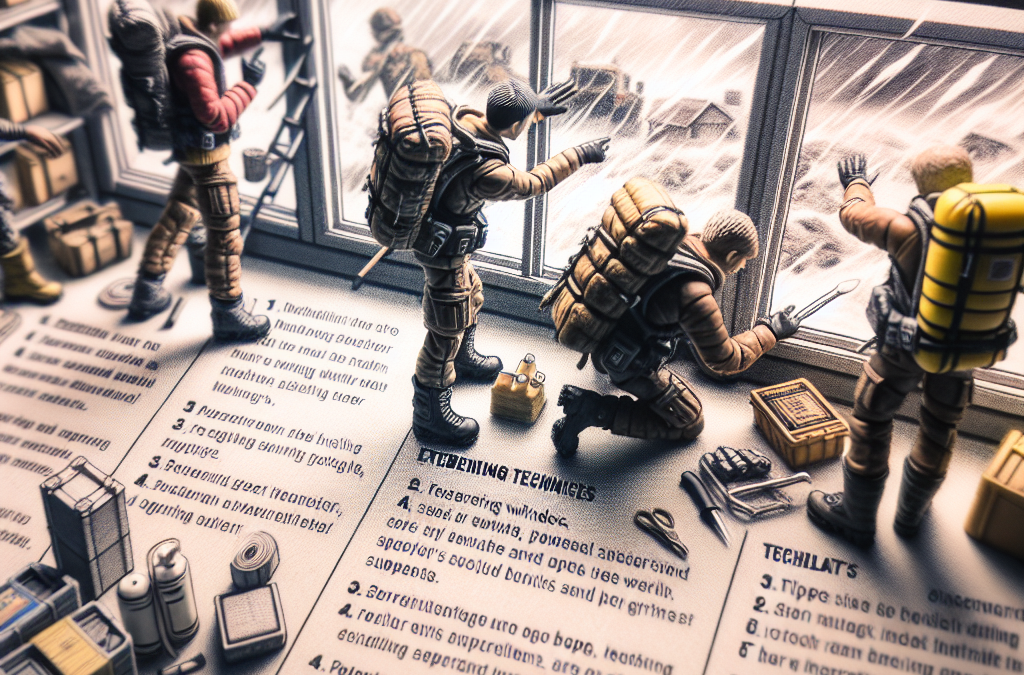Understanding Extreme Weather Conditions
What Constitutes Extreme Weather?
Extreme weather doesn’t just mean a bit of rain or a windy day; it’s all about those severe conditions that can really throw a wrench in our day-to-day lives. Think hurricanes, tornadoes, snowstorms, and even intense heat waves. Each of these presents unique challenges and dangers that we, as responsible individuals, must be aware of.
Knowing what constitutes extreme weather is the first step in effective preparation. For instance, a hurricane watch means you need to be ready for the worst, while a heat advisory can alert you to the need for hydration and sun-safety measures. Honestly, if something feels extreme, it probably is, and a little precaution can save a lot of hassle.
In my experience, staying informed about local weather forecasts and climate patterns is key. I found that having a weather app on my phone has helped me keep track of what Mother Nature has in store, so I never feel blindsided by unexpected weather changes.
Creating an Emergency Preparedness Plan
Gather Your Family and Make a Plan
When there’s a threat of extreme weather, gathering the family to set out a plan is crucial. This means discussing where to meet if you need to evacuate, knowing the routes to safety, and making sure everyone understands the plan. A family meeting sounds old school, but honestly, it really helps to create a sense of unity and preparedness.
Everyone in the family should have a role. Assign tasks to younger members, like gathering supplies or keeping track of the time. Making it a team effort not only spreads the workload but helps everyone understand the importance of emergency preparation. Believe me, this creates a sense of responsibility and reduces panic.
Plus, don’t forget to practice! Run through your plan a couple of times, maybe during a calm evening. It’ll feel less daunting if the moment arises since everyone will know what to do and where to go. Practice really does make perfect, and trust me, it eases the stress when actual emergencies happen.
Thank you for reading this post, don't forget to subscribe NOW for FREE!
Building an Emergency Supply Kit
Essentials You Should Have
Okay, let’s talk supplies! An emergency kit is basically your lifeline during extreme weather. I recommend starting with some basics: water, non-perishable food, a flashlight, batteries, and a first aid kit. These items are often the bare minimum, but they cover quite a lot when push comes to shove.
But don’t just stop there. Think about the things your family specifically needs. Do you have pets? Make sure to include their food and supplies too. Medications are crucial—stress might mess with our memories, so having those little bottles packed ready can be a lifesaver.
Lastly, consider the documents you might need during an emergency. Store them in a waterproof bag. I keep copies of my insurance policies, identification, and emergency contact information handy. It’s one less thing to worry about, and trust me, during a crisis, every little bit helps.
Staying Informed During Events
Utilizing Reliable Sources
Keeping abreast of the weather is so important; we’ve all seen how rapidly things can change. Relying on good sources of information can save you a ton of headaches. Local news stations, weather apps, and radio broadcasts are great ways to get timely updates. I always recommend having a battery-operated radio just in case the power goes out—you don’t want to be in the dark, literally and figuratively!
Additionally, social media can be a double-edged sword. It’s fantastic for real-time updates, but it can also be a hotbed of misinformation. Stick to credible accounts and channels, and be cautious when sharing information yourself. You don’t want to spread panic for no reason.
During extreme weather, I make it a ritual to check my phone frequently for updates while remaining conscious of the outside world. Sometimes things happen that aren’t covered on your app, so it pays to look out the window and listen for announcements or alerts!
Recovery and Post-Event Action
Assessing Damage and Starting Over
Once the event has passed, the recovery phase begins, and it’s essential to tackle it head-on. After an extreme weather event, don’t rush into assessing your property right away. Take a moment to breathe and ensure you’re in a safe environment first. It’s easier said than done, but your safety is the top priority.
Once it’s safe, I recommend walking through your space room-by-room, noting any damage, and gathering your insurance documents. Create a thorough inventory for your insurance company. It’s super tedious but trust me, having a clear record helps when you’re making claims.
Lastly, remember that it’s okay to ask for help during recovery. Whether it’s friends, family, or professional services, people generally want to lend a hand after disasters. No one should have to go through recovery alone, and leaning on your support system can make a significant difference during tough times.
Frequently Asked Questions
1. What types of extreme weather should I be prepared for?
Extreme weather includes hurricanes, tornadoes, blizzards, floods, and heat waves. Each type requires different preparations, so it’s important to know what could potentially affect your area.
2. How do I create a family emergency plan?
Gather your family, discuss potential scenarios, assign roles, and practice your plan. Ensure everyone knows where to meet and how to evacuate if necessary.
3. What essentials should be in my emergency kit?
Your kit should include water, non-perishable food, a flashlight, batteries, a first aid kit, medications, and any special supplies for pets or family members. Don’t forget important documents!
4. How can I stay informed during extreme weather?
Use reliable sources like weather apps, local news stations, and radio broadcasts. Keep a battery-operated radio handy for updates during power outages.
5. What should I do after an extreme weather event?
Ensure your safety first, then assess the damage carefully. Document everything for insurance claims, and don’t hesitate to ask for help during recovery.






